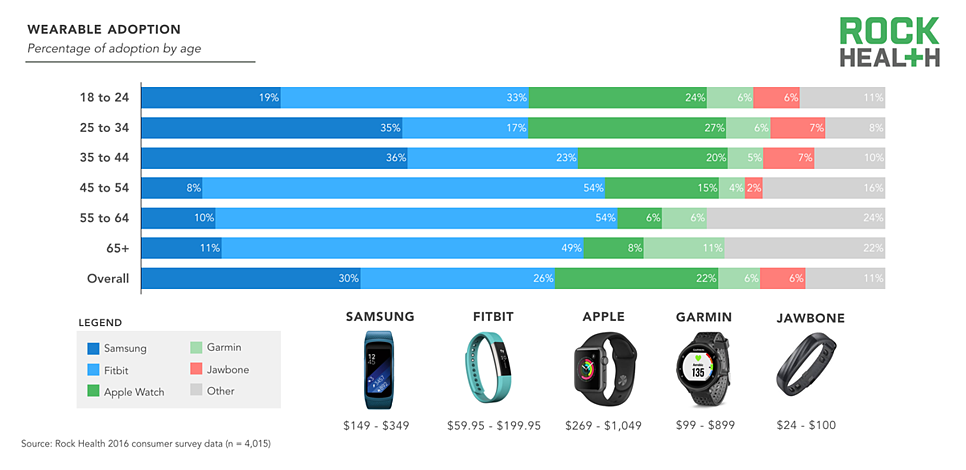The second annual survey from Rock Health on consumer health adoption revealed numerous interesting statistics on the current state of digital health in America. Most notably, the number of Americans who own wearable devices increased to nearly one out of every four individuals, which is up significantly from 12% in 2015. With a sampling of more than 4,000 representative U.S. adults, the survey also found that 75% of wearable owners purchased the wearable for themselves, 22% received the wearable as a gift, and fewer than 2% received the device from their employer. Of those who bought their wearable, a third did so in the last three months and two-thirds made the purchase in the last six months.
The survey also measured market share from major wearable device manufacturers. It found that the most popular manufacturers for all ages are Samsung (30%), Fitbit (26%), and Apple (22%). This breakdown in market share is in contrast with reports from IDC that suggest Samsung is not as well off and Garmin and Apple are neck-and-neck. Regardless, it is clear that more and more Americans are choosing to adopt wearable devices and no single brand owns the majority of the market.

As such, the results of the survey continue to make the case for employers and health plans to implement a bring your own device (BYOD) strategy for wellness. A BYOD strategy for wellness allows organizations to embrace all forms of wellness technologies, including devices and apps from all brands. It will enable consumer choice and result in lower costs for your program. With corporate wellness programs having engagement comparable to wearable device ownership, it only makes the case even stronger. Organizations should embrace the consumer market trends for wellness program success.
The survey went beyond wearable devices to study all digital health tools and found that 46% of consumers are now considered active digital health adopters, up from 19% in 2015. An active adopter is defined as an individual having used three or more categories of digital health tools. The number of Americans who are non-adopters dropped from 20 percent in 2015 to just 12% in 2016.












